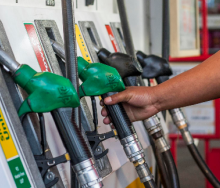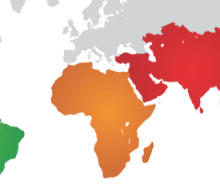The electric vehicle (EV) market is on track for a watershed year in 2024 as emissions reduction targets clash with falling consumer spending amid enduring economic uncertainty.
Rystad Energy research forecasts 17.5 million EV sales this year, an 18.5% annual increase. As a result, the share of new car sales that are either battery electric (BEV) or plug-in hybrid electric vehicles (PHEV) will increase from 19.2% in 2023 to around 21.8% at the end of 2024.
China will play a significant role in the market's continued expansion due to sizeable growth in its domestic production.
“We expect about 11.5 million new EVs will be sold in the country this year, a 44% share of all new car sales,” Rystad Energy analysts said in its latest report on the sector.
China is dominant in the global EV sector, accounting for 69% of all new EV sales in December, and continued growth is on the cards. Last year saw a 37% annual growth in sales, with approximately nine million new EVs sold and a market share of 34%.
The country has also advanced its EV penetration targets, aiming for a 45% market share by 2027, an increase from the originally planned 40% by 2030.
“With local players continuing consolidation, this strategic move opens a critical window for non-Chinese automakers struggling to gain a foothold in its booming EV market,” the report said.
Closing 2023 with 26.5 million passenger cars sold, China saw a 10.8% increase compared with 2022. December marked another milestone, with EVs achieving a record-breaking month of sales at 1.13 million units, marking a 50% annual increase. BEVs accounted for 27.6% of car sales for the month and 40% of all sales.
In Europe, market penetration is expected to grow, but slower than in previous years, at 3.3 million units in 2024. The US EV market suffered a lacklustre 2023, with uncertainty surrounding tax credits and interest rates complicating consumer decisions to switch to an electric vehicle.
Rystad Energy senior energy systems analyst, Abhishek Murali, said Chinese automakers were also aggressively expanding into emerging markets, overshadowing established players.
“This eastward shift is particularly evident in Europe, where a stagnant EV market finds hope in the arrival of budget-friendly Chinese brands. However, this influx also presents challenges: local automakers face mounting pressure to adapt, struggling with plant conversions and production delays,” said Murali.
“China's pivotal role in this dynamic becomes even more pronounced as a global supply chain leader. Meanwhile, in the West, the US presents a complex landscape. The Inflation Reduction Act's subsidies offer a potential boon, but strict rules on foreign entities ultimately dampen automotive spending, particularly in the EV segment.”













